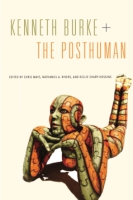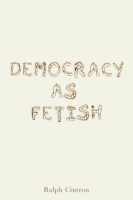Kenneth Burke’s Weed Garden
Refiguring the Mythic Grounds of Modern Rhetoric
Kyle Jensen
“To Burke scholarship, Kenneth Burke’s Weed Garden contributes an original, persuasive answer to questions about the coherence of A Rhetoric of Motives and of Burke’s whole philosophy of symbolic action. To rhetorical studies generally, it rigorously demonstrates the usefulness of genetic rhetorical criticism in understanding a specific text of rhetorical theory and masterfully illustrates the value of mythic images in interpreting rhetorical texts and contexts. For historically oriented cultural studies, it provides an extremely strong case for the major contribution rhetorical theory and analysis can make, especially when it combines scrupulous, detailed archival work with sophisticated, interdisciplinary theoretical speculation.”
- Description
- Reviews
- Bio
- Table of Contents
- Sample Chapters
- Subjects
In this book, Kyle Jensen argues that the coherence in Burke’s thought has yet to be fully appreciated. Drawing on unpublished drafts and voluminous correspondence, he reconstructs Burke’s drafting and revision process for A Rhetoric of Motives as well as its recently discovered second volume, The War of Words. Jensen’s extensive archival analysis reveals that Burke relied on the concept of myth to draw together the loose ends in his argument. For Burke, all general theories of rhetoric are formed and structured using mythic images and terms.
By exploring what Burke added and omitted, and by putting his writing process into the context of daily life after the Second World War—including Burke’s attempts to clear the weeds from his Andover farm—Jensen sheds new light on the key problems that Burke encountered and the methods he used to overcome them. Kenneth Burke’s Weed Garden is essential for those who study Burke and the tradition of modern rhetoric that he helped found.
“To Burke scholarship, Kenneth Burke’s Weed Garden contributes an original, persuasive answer to questions about the coherence of A Rhetoric of Motives and of Burke’s whole philosophy of symbolic action. To rhetorical studies generally, it rigorously demonstrates the usefulness of genetic rhetorical criticism in understanding a specific text of rhetorical theory and masterfully illustrates the value of mythic images in interpreting rhetorical texts and contexts. For historically oriented cultural studies, it provides an extremely strong case for the major contribution rhetorical theory and analysis can make, especially when it combines scrupulous, detailed archival work with sophisticated, interdisciplinary theoretical speculation.”
“Scholars interested in Burke studies will find this compelling book immensely valuable and provocative. Kyle Jensen offers a thorough reading of Burke’s archival and primary materials and his analyses will nuance and clarify understandings of rhetorical concepts such as myth.”
Kyle Jensen is Professor of English at Arizona State University. He is the author of Reimagining Process: Online Writing Archives and the Future of Writing Studies and coeditor of several books, including a new critical edition of Kenneth Burke’s The War of Words and Responding to the Sacred: An Inquiry into the Limits of Rhetoric, the last also published by PSU Press.
Acknowledgements
List of Abbreviations
Introduction
Part I: An Archive of Motives
Prolegomena
1. Lapsing into the Unformed
2. A Modest Proposal
3. Part-to-Whole Relations
4. The Factors Behind Rhetoric
5. The Ideal Opening
6. Charting an Upward and Downward Path
7. A Pause at the Window
8. Writing at the Center of the Universe
9. Everything Is Nowhere
Epilegomena
Part II: A Theory of Motives
Prolegomena
1. Mythic Palingenesis
2. Identification’s Dimensions
3. Devices Old and New
4. Mythic Historiography
Epilegomena
Notes
Works Cited
Index
Download a PDF sample chapter here: Introduction
Also of Interest
Mailing List
Subscribe to our mailing list and be notified about new titles, journals and catalogs.







